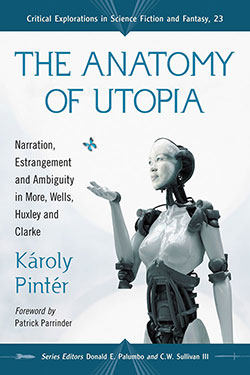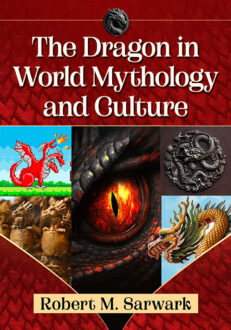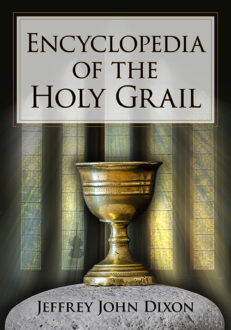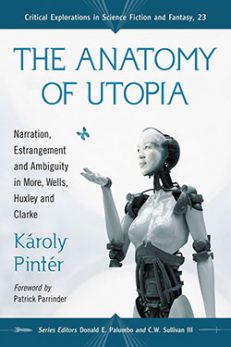The Anatomy of Utopia
Narration, Estrangement and Ambiguity in More, Wells, Huxley and Clarke
$35.00
In stock
About the Book
Since the early rise of the novel, utopian stories have held the public imagination. This critical text argues that though these books are commonly seen as social statements or ideological propaganda, they should be treated as literary texts, not as blueprints for a human community. Thomas More’s Utopia, H.G. Wells’s A Modern Utopia, Aldous Huxley’s Brave New World, and Arthur C. Clarke’s The City and the Stars are examined as texts representative of utopianism during specific historical periods. This thoughtful study is a vital addition to critical discussion of utopian literature.
About the Author(s)
Bibliographic Details
Károly Pintér. Series Editors Donald E. Palumbo and C.W. Sullivan III
Format: softcover (6 x 9)
Pages: 244
Bibliographic Info: notes, bibliography, index
Copyright Date: 2010
pISBN: 978-0-7864-4036-8
Imprint: McFarland
Series: Critical Explorations in Science Fiction and Fantasy
Table of Contents
Acknowledgments   ix
Foreword by Patrick Parrinder   1
Introduction   3
1. Utopia the Protean Concept   11
2. Encounters with a Stranger   45
3. Glimpses of a Moving Picture   97
4. After Utopia? Anti-Utopia and Science Fiction in the 20th Century   136
Conclusion   192
Chapter Notes   197
Bibliography   215
Index   227
Book Reviews & Awards
“Pintér’s careful rehabilitation of the utopian genre is very welcome…convincing…riveting…provides superlative evidence that the critical engagement with these fictional visions of (seemingly) perfect worlds is not only an entirely legitimate but indeed a highly entertaining and captivating enterprise…a valuable contribution to utopia studies”—variations; “some interesting points are scattered throughout and the book will reward readers interested in the subject matter”—Critical Mass; “very readable…a book that students of utopia should examine”—Extrapolation; “recommend”—The Wellsian; “a solid piece of scholarship and impeccably edited…valuable”—Hungarian Journal of English and American Studies; “careful and solidly grounded approach”—Journal of the Fantastic in the Arts; “well written”—Science Fiction Studies.





